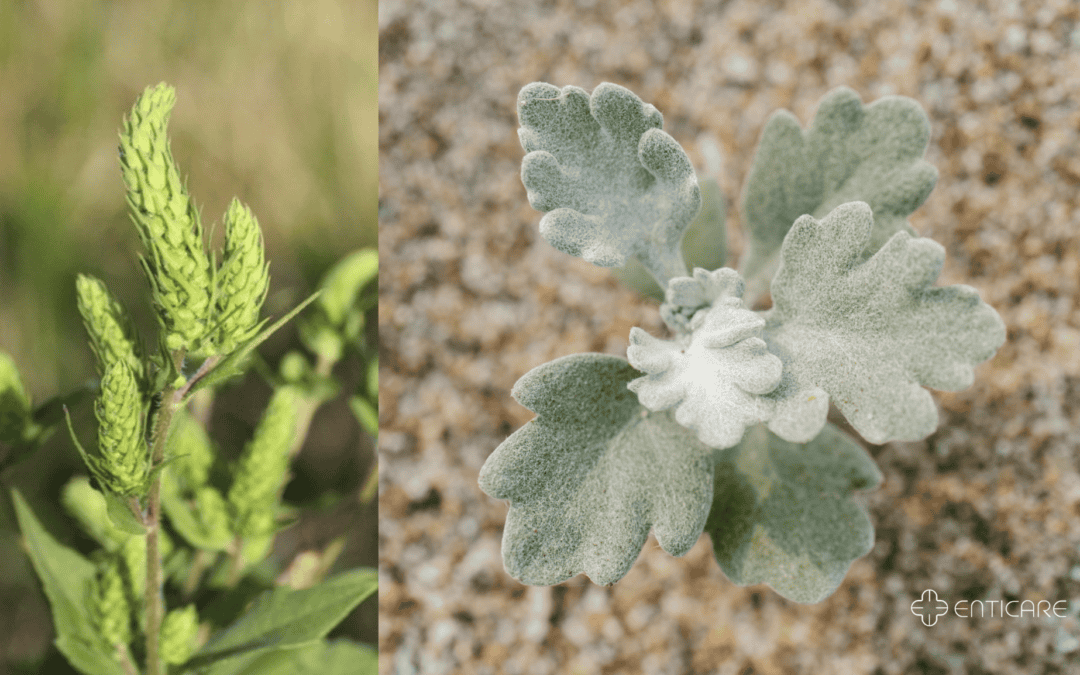Dreaming of that perfect beach vacation? Sunshine, gentle waves, and… itchy eyes and a runny nose? If your beach bliss takes a turn for the worse, you might be surprised to learn the culprit could be the seemingly innocuous marsh elder weed.
Marshelder, also known as sea elder or beach wormwood, is a common plant found along coastlines worldwide, including North America. It thrives in sandy environments and is easily recognizable by its silvery-green foliage and clusters of small, yellow flowers. While marsh elder provides essential habitat for coastal ecosystems, its pollen can trigger unpleasant allergies in some people.
Origin in North America
The good news for allergy sufferers is that marsh elder is native to North America. This means you’re more likely to encounter it on your coastal getaways or while living near the beach.
Season
If you experience allergy symptoms during your beach trip, particularly from late summer to fall (August-October), marsh elder pollen could be the reason. This coincides with the peak flowering season for the plant.
Signs and Symptoms
If you have a marsh elder allergy, you might experience these common symptoms during the plant’s flowering season:
- Runny or stuffy nose
- Itchy, watery eyes
- Sneezing
- Coughing
- Scratchy throat
- Headaches (in some cases)
- Difficulty breathing (in severe cases)
Causes
Just like other allergies, marsh elder allergies arise from an overreaction by your immune system. When you inhale marsh elder pollen, your immune system mistakenly identifies it as a threat and releases chemicals that trigger allergy symptoms.
Prevention
While a day at the beach is hard to resist, here are some tips to minimize your exposure to marsh elder pollen and manage allergy symptoms:
- Plan your beach trip: If possible, schedule your beach vacation outside of marsh elder’s flowering season (late summer to fall).
- Track pollen counts: If you must visit during peak season, check daily pollen forecasts and limit beach time when counts are high.
- Choose your beach wisely: Inquire about local flora and avoid beaches with heavy marsh elder growth.
- Stay away from windy days: Wind can stir up pollen, worsening allergy symptoms.
- Maintain a barrier: Wear sunglasses and a hat to create a physical barrier between your eyes and pollen.
- Shower after spending time outdoors: This removes pollen from your hair and skin.
- Use saline nasal spray: This can help soothe irritated nasal passages.
Risk Factors
While anyone can develop a marsh elder allergy, certain factors can increase your risk:
- Family history of allergies: If you have a family history of allergies, you’re more likely to develop allergies yourself, including marsh elder.
- History of hay fever: People with hay fever are more prone to develop allergies to other airborne allergens like marsh elder pollen.
- Asthma: Marshelder pollen can worsen asthma symptoms.
Treatment
There’s no cure for marsh elder allergy, but several treatment options can manage your symptoms and improve your enjoyment of the beach:
Over-the-counter medications: Antihistamines can help alleviate allergy symptoms like itchy eyes, runny nose, and sneezing. Decongestants can help clear nasal congestion.
Nasal corticosteroids: These prescription medications can effectively reduce inflammation in the nasal passages, offering long-term relief.
Allergy shots (immunotherapy): This long-term treatment involves gradually increasing your exposure to marsh elder pollen over time, desensitizing your immune system and reducing your reaction to the allergen.
By following these tips and consulting with a healthcare professional, you can take control of your marsh elder allergy and ensure your next beach trip is filled with relaxation, not sniffles. Always consult with a healthcare professional for diagnosis and treatment of allergies. Personalized Treatment Plans Available at Enticare. Call 480-214-9000 Now!

